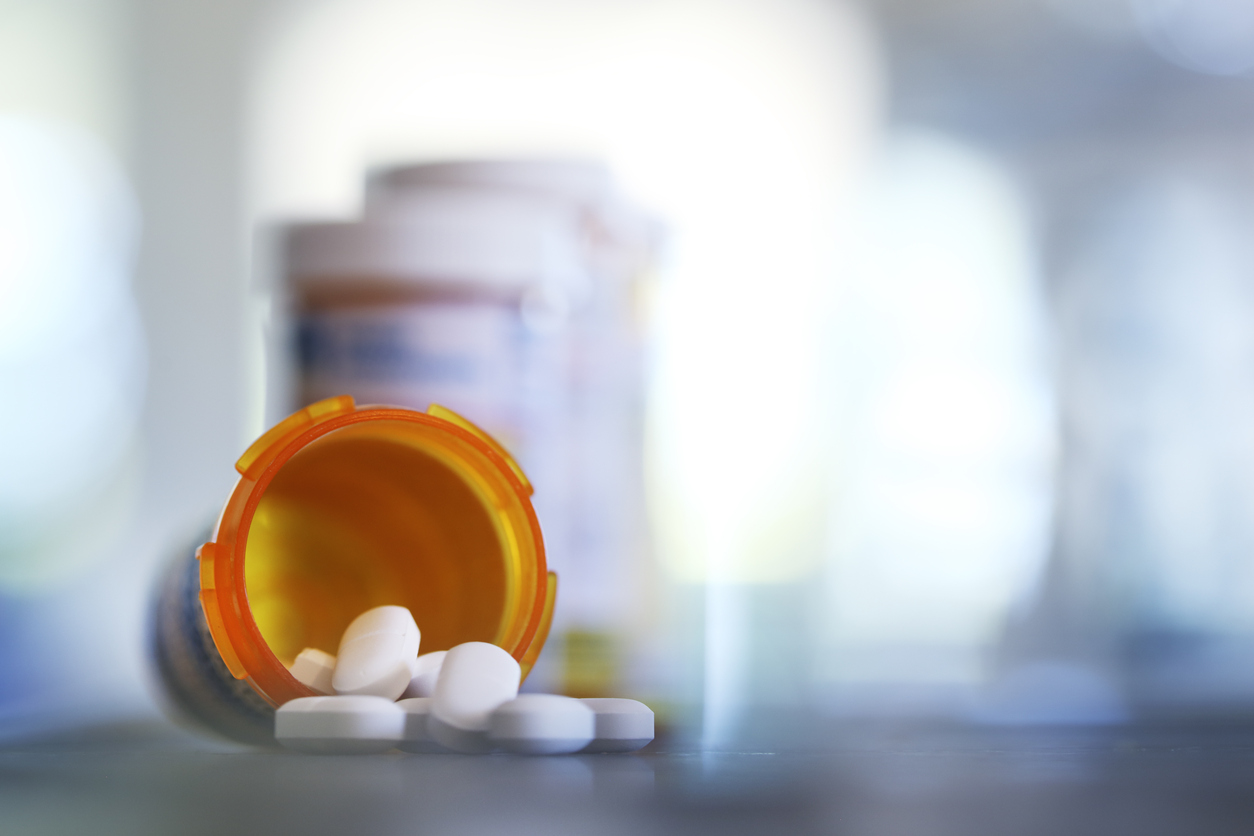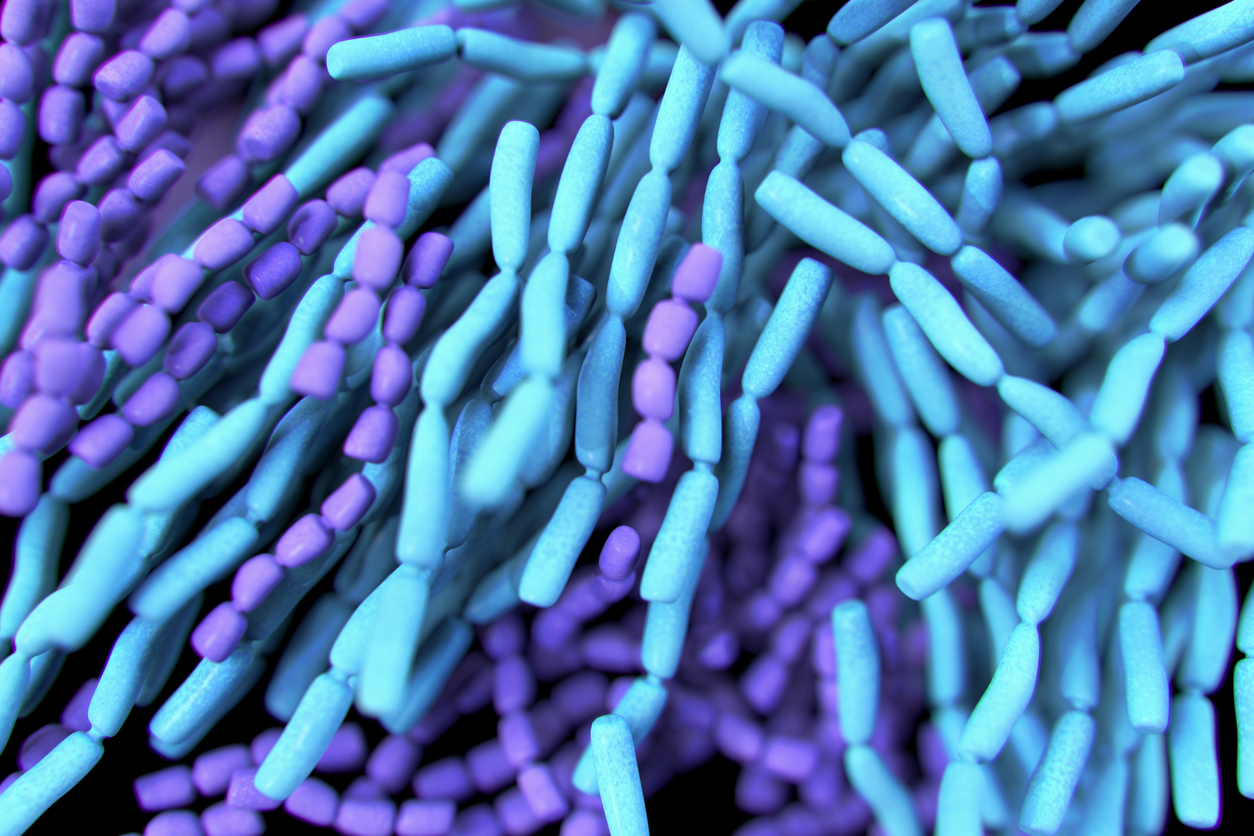The effects of common medications on the gut
In addition to diet and lifestyle, medications can also affect our gut health.
Nearly half of Americans are taking prescription drugs and 10.6% of us took five or more prescription drugs within the past 30 days.1,2 It’s reported that over-the-counter (OTC) drugs are used more frequently, with 84% of Americans taking OTC medications to treat colds, the flu, coughs or sinus problems, 82% for pain, 77% for gastrointestinal upset, and 75% for allergies.3
As useful and necessary as many of these drugs are in treating various conditions, it’s also important to more fully understand how they affect us. New research is looking into drug-gut microbiome interactions, with surprising results. One study found that 24% of over 1,000 medications investigated had a measurable effect on representative gut bacterial strains.4 Through a fuller understanding of the drug-gut microbiome interactions, we may be able to leverage this relationship to address side effects, improve current treatments, or create new ones.
Although the effects of prescription and non-prescription drugs on gut health has not been fully characterized, recent studies are providing illuminating insights.

Here’s a short summary of some recent research findings for how common medications affect gut health:
Antibiotics
The use of antibiotics heavily disrupts the ecology of the gut microbiome and can result in microbial imbalance or maladaption called dysbiosis. A dysbiotic microbiome may not perform vital functions such as nutrient supply, vitamin production, and protection from pathogens.5 Dysbiosis has been associated with a range of health problems and has also been implicated in metabolic, immunological, and developmental disorders, as well as susceptibility to development of infectious diseases.6
Proton pump inhibitors
Proton pump inhibitors (PPIs) are among the most widely used drugs in the world. The use of PPIs can result in pH elevation throughout the digestive tract, especially in the stomach and small bowel, that can allow more microbes to survive the digestive process and potentially allow pathogens to colonize the gastrointestinal tract.7
In one recent study, the observed differences between PPI users and non-users were consistently associated with changes towards a less healthy gut microbiome.8 These differences were in line with known changes that predispose individuals to C. difficile infections and can potentially explain the increased risk of enteric infections in PPI users.
Metformin
While widely used in the treatment of type 2 diabetes, the mechanism of action for metformin is largely not understood, but new research is showing that it may exert its effects through the gut microbiome.9
Several human and animal studies have shown that metformin alters the gut microbiota composition by enhancing the growth of some bacteria, such as Akkermansia muciniphila, Escherichia spp. or Lactobacillus and by decreasing the levels of some other ones like Intestinibacter.10
The researchers of one of these studies into metformin concluded: “Our findings provide support for the notion that altered gut microbiota mediates some of metformin’s antidiabetic effects.”9 These results point to a potential future where people with type 2 diabetes might be able to control their condition better through foods that promote beneficial gut bacteria.
NSAIDs
Non-steroidal anti-inflammatory drugs such as aspirin are common over the counter medications used to relief inflammation and pain. It’s been estimated that 60-70% of patients on long-term NSAIDs develop mucosal damage, including an increase in intestinal permeability, intestinal inflammation, erosions and protein loss.11
Although NSAID-induced damage to the gut has been recognized for some time, investigators more recently suggested that such effects may originate with dysbiosis in the gut microbiome. For example, NSAID enteropathy does not occur in germ-free mice, but, when Eubacterium limosum or Escherichia coli is introduced, intestinal ulceration occurs.1
These findings are supported by further research that has shown that treatment with NSAIDs may alter the gut microbiome, resulting in an overgrowth of Gram-negative and anaerobic bacterial species in the small intestine that secrete LPS toxin.11
Statins
Statins are medicines used to regulate serum cholesterol and reduce the risk of heart disease. Although statins are effective in removing cholesterol from the blood, a recent study published in Nature has found that statins can disrupt the gut microbiome, inhibiting the growth of some potentially useful bacteria in the gut and allowing other bacteria to flourish.4
The study confirms what has previously been seen in studies done on mice given statins. These previous studies have found that they cause profound alterations in the balance of gut microbes, and this imbalance is similar to what has been seen in diet-related obesity.12
This site is for informational purposes only and is not intended to diagnose, treat, cure, or prevent any disease or provide specific medical advice. You should always seek advice from a physician or other qualified health care provider for your individual medical needs.
next article
Exploring probiotics for gut health

Probiotics are live bacteria that are beneficial to our health, especially to our gut health. These friendly bacteria help keep our digestive system running smoothly, help our immune system defend against pathogens, and can have effects on everything from our mood to our sleep.
Stay in the know
Get updates on the latest in gut health
References
- Rogers MAM and Aronoff DM. The influence of nonsteroidal anti-inflammatory drugs on the gut microbiome. Clin Microbiol Infect. 2016 Feb;22:178.e1–178.e9.
- National Center for Health Statistics. Health, United States, 2013: with special feature on prescription drugs. Hyattsville, Maryland: 2014.
- Consumer Healthcare Products Association. Understanding trust in OTC medicines: consumer and healthcare provider perspectives. Nielsen and IMS; 2013.
- Maier L, Pruteanu M, Kuhn M, et al. Extensive impact of non-antibiotic drugs on human gut bacteria. Nature. 2018;555:623–628.
- Guarner F and Malagelada JR. Gut flora in health and disease. Lancet. 2003;361:512–519.
- Langdon A, Crook N, and Dantas G. The effects of antibiotics on the microbiome throughout development and alternative approaches for therapeutic modulation. Genome Med. 2016;8:39.
- Freedberg DE, MD, Lebwohl B, and Abrams JA. The impact of proton pump inhibitors on the human gastrointestinal microbiome. Clin Lab Med. 2014;34:771–785.
- Imhann F, Bonder MJ, Vich Vila A, et al. Proton pump inhibitors affect the gut microbiome. Gut. 2016;65:740-748.
- Wu H, Esteve E, Tremaroli V, et al. Metformin alters the gut microbiome of individuals with treatment-naive type 2 diabetes, contributing to the therapeutic effects of the drug. Nat Med. 2017;23:850–858.
- Rodriguez J, Hiel S, and Delzenne NM. Metformin: old friend, new ways of action-implication of the gut microbiome? Curr Opin Clin Nutr Metab Care. 2018;21:294-301.
- Utzeri E and Usai P. Role of non-steroidal anti-inflammatory drugs on intestinal permeability and nonalcoholic fatty liver disease. World J Gastroenterol. 2017;23: 3954–3963.
- Caparrós-Martín JA, Lareu RR. Ramsay JP, et al. Statin therapy causes gut dysbiosis in mice through a PXR-dependent mechanism. Microbiome. 2017;5:95.
